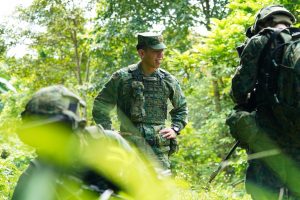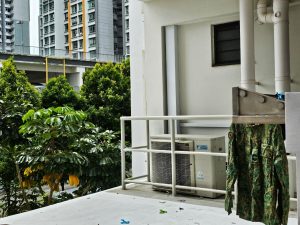What makes a good immigrant? This question has reverberated across social media in the last couple of weeks. It’s often parked under policy debates, or in conversations about xenophobia and racism, but it’s the source of the panic in the discourse on foreigners in Singapore. It’s an emotional question which grazes themes of belonging, othering, and integration. Where is the foreigner’s place? The bureaucracy of immigration tends to judge solely on their capacity to add value to the economy. But there’s a human element to unpack here, too.
In general the relations between foreigners and locals in Singapore are friendly but transactional. By design, there are separate realms for each group. This divide is most clear at the educational level. The international schooling system is insular and export focused. In the final years of secondary school, the students are primed to leave the country for overseas universities. However, as more expatriate families are applying for Permanent Residency, their male offspring are handed a challenge they aren’t prepared for in the international schools: enlisting for National Service.
The influx of ‘ang-mohs’ serving the country is a value proposition for the nation. There is a path to cultivate the localised foreigner in Singapore: someone who is unquestionably different from the born and bred Singaporean, but nonetheless, a valued thread in the societal fabric. It’s the perfect storm for integration. Both groups are thrown into a situation where their differences matter less than their shared commitment to serve the nation.
To investigate the question: What makes a good immigrant? RICE spoke with two ‘ang-moh’s’ who served their national service after going through the international schooling system as foreigners in Singapore. Here’s what we learned.
Meet Euan & Young-Min
Euan Davies, 21, is half Singaporean and half British. In his tenure at United World College of South East Asia on Dover Road, he noticed a difference between the socializing habits of local and expat students.
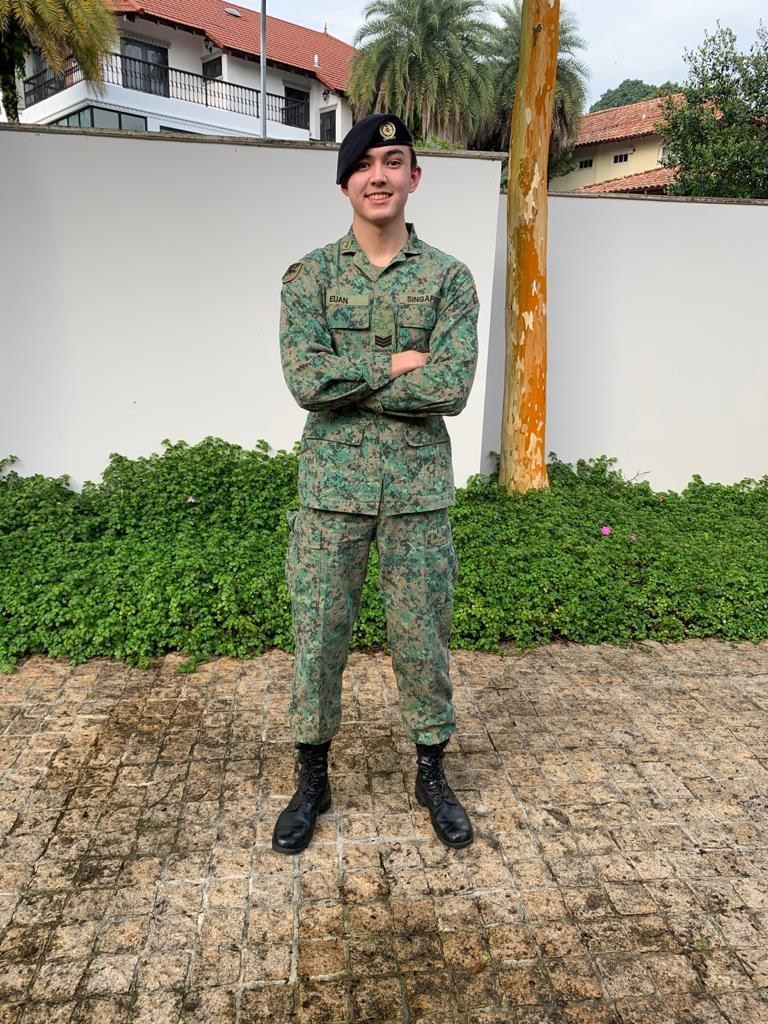
“In local schools there’s more emphasis on studying, and sometimes due to their workload, the [locals] don’t have the time to hang out on the weekends, like we do.” This difference in workload was a source of tension between him and his colleagues during National Service. “Some local kids think that international students have it really easy.”
When asked if there was a reason why the foreign students don’t mingle with the locals, Euan cited a feeling of otherness. “Even though I’m half Singaporean, because of the international school bubble, I felt like a guest here.”
It wasn’t just his school which prompted a shaky sense of belonging for Euan. During Chinese New Year, he felt disconnected from his Singaporean relatives when they spoke in a dialect he couldn’t understand. “I related more to my Dad when we went visiting. Being the only white guy, he’s fawned over, but he doesn’t understand what’s going on.”
Young Min, 21, is a Singaporean citizen who was born in Korea, and also went through the international school system in Singapore. Prior to National Service, he too felt that his place in Singapore was unclear. “I definitely felt more international, I left Korea when I was nine, so I didn’t really have a chance to absorb myself in the culture. In Singapore, I built my identity with a lot of international friends.” Though he’s not technically an ‘ang-moh’, he was treated like one due to his accent & international education in Singapore.
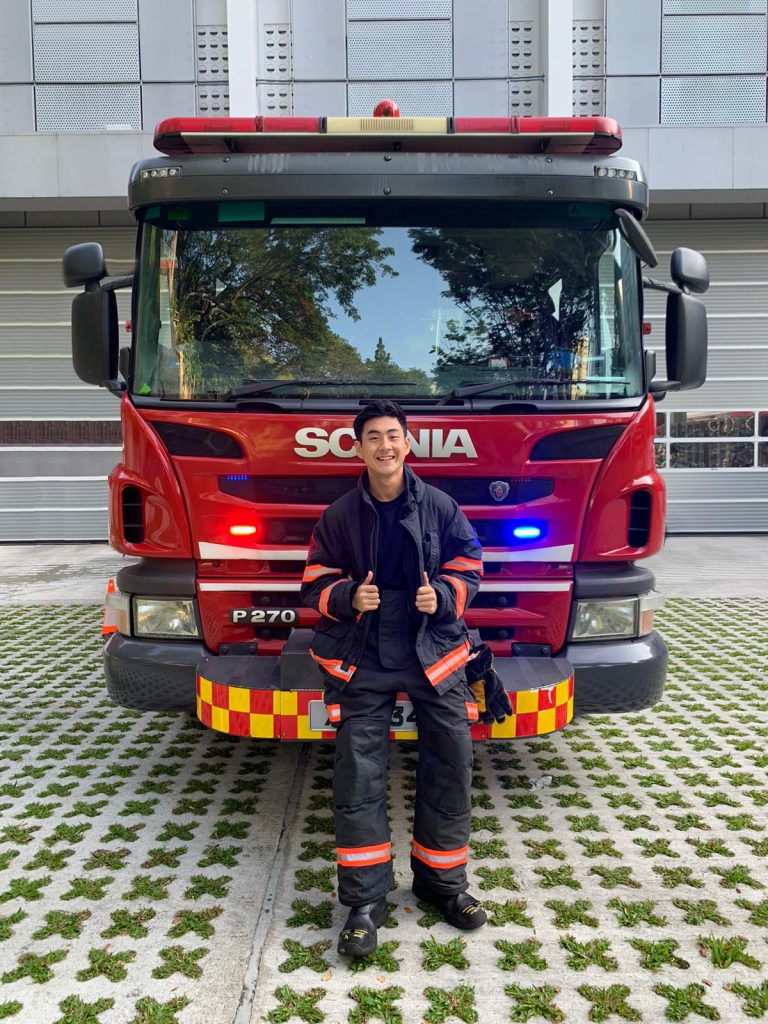
Culture Shock
At first, Euan was excited about joining the military. “When I was 15 and my student pass was expiring, my parents asked if I wanted to become a Permanent Resident. They explained that I’d have to serve in the army, and I thought it sounded cool. Growing up, I loved the military.”
But as the time to enlist drew closer, dread and isolation kicked in. While Euan watched his peers at UWCSEA make plans to leave Singapore and head overseas for university he felt stuck, like he was treading water.
“At 17, 18, you start developing your life plan. You have goals you want to achieve. My enthusiasm died down. Suddenly, this big circle of people that I knew quite intimately, dwindled down to single digits. I was worried about what was going to happen.”
Young Min also felt apprehensive when conscription was due to start. His brother, suffering from a back injury, had a fraught experience in NS. Often, his brother referred to his two years in service as a waste.
Like Euan, watching his peers emigrate didn’t help Young Min’s nerves either. “My friends were living life to the fullest and making new friends in college. So that was a bit frustrating. But at the same time, I knew that I would give my time in the civil defence force a hundred per cent. I didn’t want my own two years to feel like a waste of time.”
A Rough Start
The basic training phase was the most shocking part of NS life, with Euan in BMT (basic military training) and Young Min in BRT (basic rescue training.) It’s the first taste of the NS world, and, by design, isn’t pretty. The hours are long, the work is gruelling, and the superiors are deliberately tough. It’s a rite of passage: the process of breaking a soldier down to build them up in the spirit of brotherhood and togetherness. For the foreigners in Singapore who serve in NS, there’s an additional hurdle to clear: integrating with the locals.
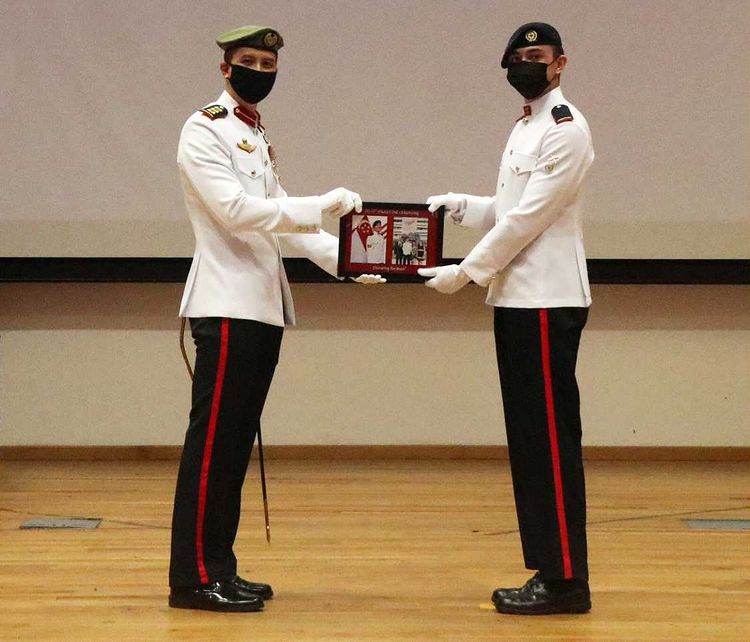
In BRT, Young Min encountered a presupposition about what kind of person he was because of his accent. “By having the ang moh accent, you’re immediately separated from the rest of the group. They think you’re cocky, or that you’re exaggerating the accent to feel superior to them when really, that’s just how you speak.” He observed that the locals “instantly put up a defensive wall” to the expats.
Euan’s experience in BMT was similar to Young Min’ in BRT. Having lived in the expat bubble for most of his life, the jarring part of enlisting was seeing the chasm between foreigners and locals firsthand.
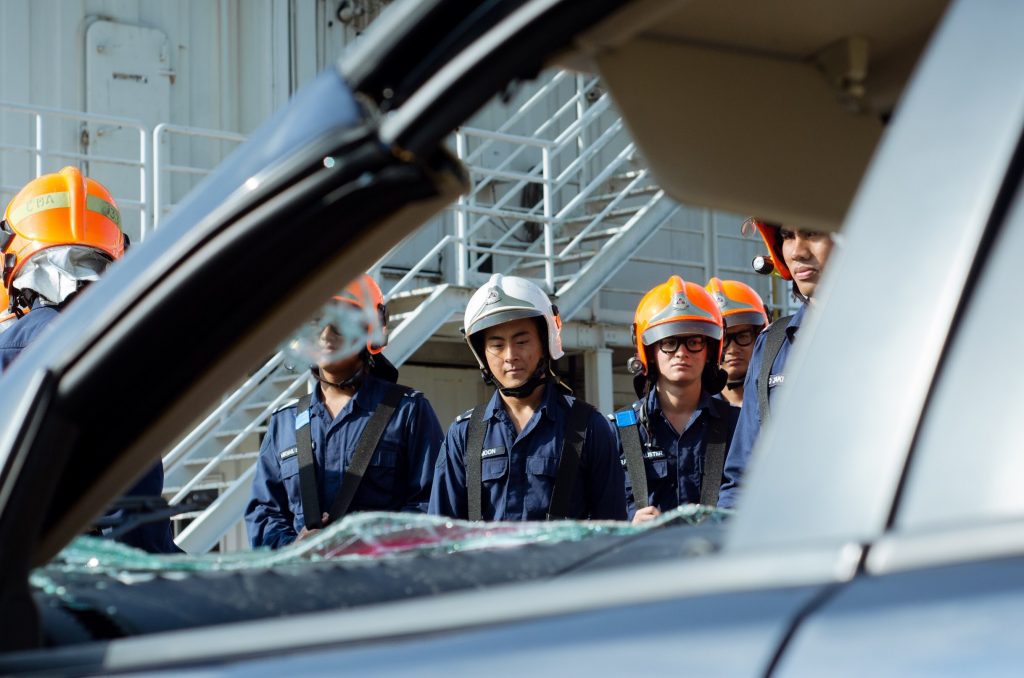
“I went from never really speaking to Singaporeans on a daily basis, to sharing a room with 15 of them.” He quickly banded together with the other expats in his company. “The accents of an international student just echo throughout the room. At first, it’s easier to spend time with people whose life experience is similar to yours.”
It wasn’t just the accents which set them apart, though. Young Min noticed there was a wide range of normal, mundane things that locals did differently. “I didn’t have any exposure to Singaporean culture beforehand. The jokes they make, the way they talk, the way they view things, it was all very foreign to me. Even though I’ve lived here for so long, I didn’t know this about them. I definitely clashed with my peers at times because of that.”
To Be Or Not To Be: A Wayang Ang Moh
In BMT, Euan felt down about falling behind his peers from school. So, he resolved to work as hard as he could to excel in the army. Perhaps, though, he went about this the wrong way—at the expense of building close relationships with his platoon mates.
“I think [trying to do well] came off as arrogance, and superiority, which I didn’t intend. I was seen as someone who tried too hard and got called wayang. At times, it kind of hurt my feelings.” The lay of the land in National Service was unclear: in the international school system, ‘trying hard’ is good. Often, it’s more important to look out for yourself than lift up your peers. “In hindsight, I admit there was some part of me that was being wayang. The poly guys who were much older just saw right through me. I didn’t make a conscious effort to be ‘like a snake’ but I can see how it came across that way.”
Loneliness & Making Friends
Euan and Young Min made it clear that expats enter National Service in a unique context. For locals, enlisting is a collective, shared experience that bonds young men. For the expats, at first, it feels like a punishment. The bubble has exploded: they’re plunged into an environment where their foreignness is stark, and their friends are living large overseas.
Euan felt this unique isolation throughout his basic training.
“I didn’t make the effort to get to know people because I felt like I was missing out on so much. Obviously, I didn’t do myself any favours in my platoon. They went out on the weekends together and I was never invited.” When peer appraisals rolled around, Euan realized that he needed to make some effort to assimilate: he was sent to sergeant school instead of officer school. “I suspect that the peer appraisals kept me out of officer school. That was my own fault, because I was so focused on the outside world, like my friends and my girlfriend, so I wasn’t really focused on building relationships in my platoon.”
Learning Singlish, Eating Local Food, And Forging Relationships
Clearly, the ang moh accent is divisive. For better or worse, it singles out the expats as, unlike their local peers. In order to assimilate, Euan had to augment his voice to be heard. When it came time to command a group of men, he adopted the local slang. “I learned that if I don’t speak Singlish, some of my men don’t know what I’m trying to say.” With that communication barrier cleared, Euan felt accepted by his peers and more comfortable socializing with them.
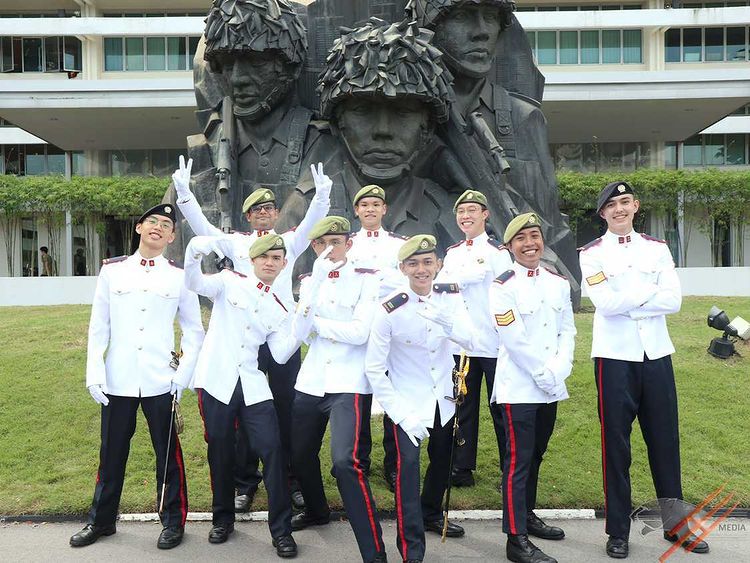
For Young Min, the easiest way to connect with his local friends was through food. “Ordering McDonald’s every day didn’t help me fit in. I made an effort to try more hawker food, especially Malay cuisine like Nasi Goreng.” He found that breaking bread was a bonding experience. “There’s something intimate about ordering, sharing, and eating food together.”
Though the markers of social difference (accent, taste in food, choice of words) are divisive, the nature of National Service overrides superficial separation. The sheer proximity of the cramped living quarters forces young men to be candid and open with their peers, despite their different backgrounds.
For Euan, hearing about the issues faced by his peers was an eye opening experience. “A bunch of guys in my platoon had really serious issues: financial, family, and health related. In school, no one I knew had problems to this extent. I realised how sheltered we are in the expat bubble. I gained this new perspective on how privileged that environment is. With my army friends, I went through the highest of highs and the lowest of lows. That’s what connected us.”
A scary encounter with an unruly fire taught Young Min a similar lesson on the importance of building relationships with his colleagues. “It was very dark, smoky, and hot. I got tangled up in some wires which had melted from the ceiling and got stuck. I kept shouting for help, and at that point I just thought: What if I’m going to die? But then my friend saved me by snipping off the wires.”

What Makes A Good Immigrant?
So: What makes a good immigrant? After speaking with Euan and Young Min, it’s clear that for integration to work, there needs to be sufficient common ground. National Service offers this contextless proximity in spades. It doesn’t matter who you are, or where you came from when the chips are down. There’s a common goal that can only be achieved through cooperation. It seems that for now, National Service is the only formal institution which forces the foreigners in Singapore to interact with the locals.
But is the answer to this question more complex in 2021? In the past, assimilating with the culture by picking up Singlish and going to the hawker was enough. But, if the news cycle this year has revealed anything it’s this: the desire of the masses are fickle. The goal posts for ‘a good immigrant’ keep shifting. Friction caused by these oscillating expectations has further divided the foreigners from the locals. We’ve seen push back against immigration from the locals, and unhappiness from the foreigners currently in Singapore.
Euan and Young Min’s experiences in National Service have illustrated that some preconceived notions held by the locals make integration for foreigners in Singapore a tough nut to crack. It seems there is a reality that both sides need to accept before we can live in harmony: many aspects of Singaporean life are dependent on good relations between foreigners and locals.
Instead of each side bemoaning the other for not making an effort or disrupting the social fabric, perhaps we can focus on practical goals that solve the real issues at play. If you’re a local who is unhappy about foreigners “stealing your jobs”, endeavour to upskill where possible. If you’re a foreigner who feels unvalued in Singapore, reach out to your community and see if there’s a personal difference you can make.
Ultimately, the responsibility to integrate lies with both parties. As Euan said early in our conversation: “It’s a little sad that we have so many common experiences yet, because of our preconceived notions, we don’t get the chance to know each other.” The discourse on foreigners in Singapore is fraught with statistics and salaries. In an effort to lower the temperature of this conversation, perhaps there’s an emotive approach to consider: Can we extend some hospitality?
Tell us what you thought of this piece at community@ricemedia.co. If you haven’t already, follow RICE on Instagram, Spotify, Facebook and Telegram.


